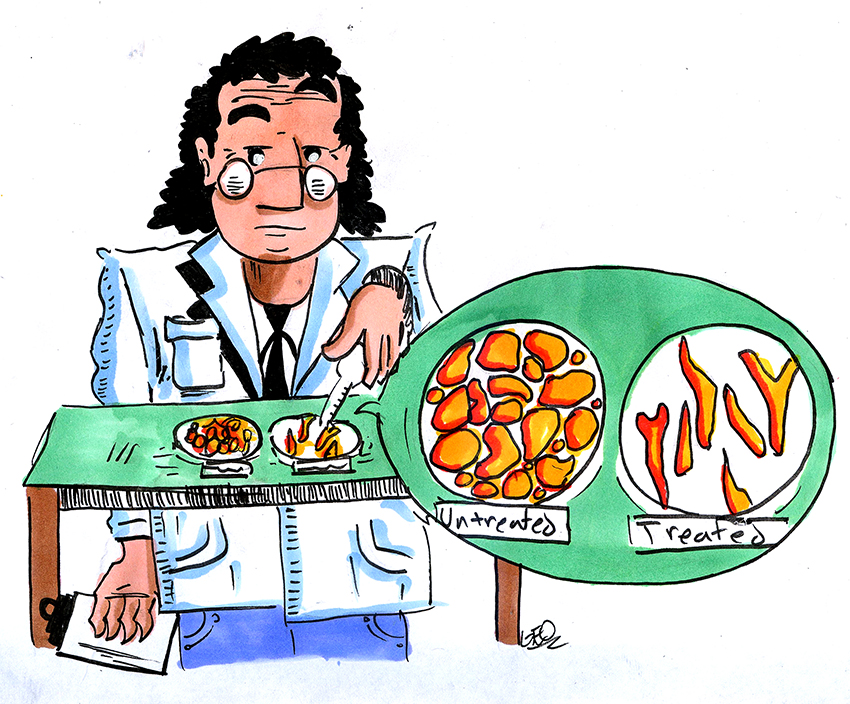In a recent preclinical study, scientists engineered a human enzyme to degrade cysteine in the bloodstream, effectively starving cancer cells. Cysteine is an important amino acid, a protein building block needed for cell maintenance and proliferation. It also makes up part of an antioxidant that prevents fatal damage to the cell from toxic byproducts. The enzyme, already present in the human body, was enhanced by researchers to degrade cysteine at a much higher frequency.
Both healthy cells and cancer cells require cysteine, but in different amounts. While healthy cells produce enough cysteine on their own, cancer cells have mutations, replicate much faster and are less stable, requiring more cysteine to survive, John DiGiovanni, professor in the College of Pharmacy, said.
This heightened need for cysteine can cause a cancer cell to consume more than what is created by the cell, causing it to draw cysteine from the bloodstream and surrounding environment, according to Everett Stone, molecular biosciences research assistant and professor.
“There were signs of cysteine addiction, so these (cancer) cells are really desperate for this amino acid, sucking it up from the bloodstream,” Stone said. “Normal cells don’t have this huge addiction to cysteine; they make all they need and they’re fine. Many cancer cells cannot make enough, or do not make any, so they’re missing an important antioxidant.”
Besides being an integral component of proteins, cysteine is also one third of an antioxidant called glutathione, which breaks down toxic byproducts produced by cancer cells. Without cysteine, glutathione cannot function in the body.
“Cancer cells are really unstable because they create a lot of reactive oxidative species, or toxic byproducts of their metabolism. They typically put lesions in DNA and damage other cells — the cells do this by controlling a lot of glutathione,” Stone said.
DiGiovanni said cancer cells are more stressed and toxic because of their elevated, irregular metabolism.
By engineering the enzyme to degrade cysteine in the bloodstream, the researchers reduced cancer cells’ supply of cysteine. Without access, the cells became more toxic and ultimately self-destructed.
In preclinical studies, the engineered enzyme safely treated breast and prostate cancer in lab models, as well as chronic lymphocytic leukemia. Most notably, it destroyed the cancer cells, but had no deleterious consequences for the healthy cells, according to Shira Cramer, a chemical engineering graduate student who worked on the project. Future steps include optimizing the enzyme and making sure it’s safe for people, she said.
“With these models in labs, sometimes we see static progression in the cancer cells, and sometimes the cancer will come back after the enzyme is gone,” Cramer said. “We need to do more research and trials to figure out how we want to use this treatment in humans.”















